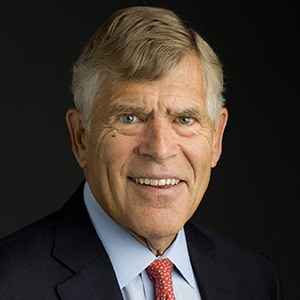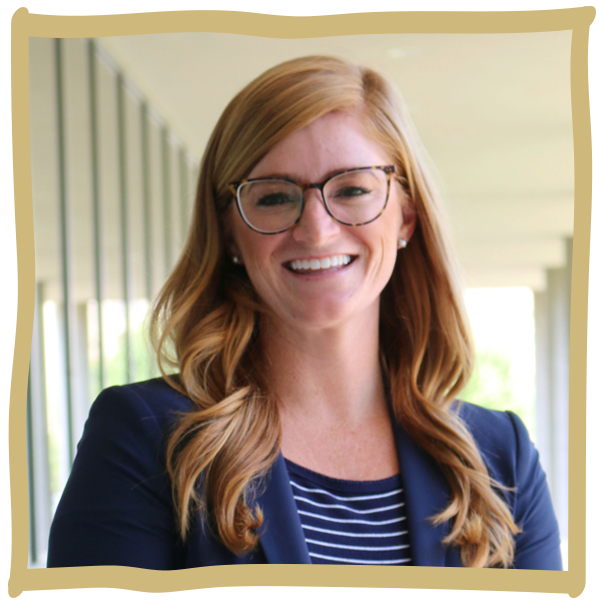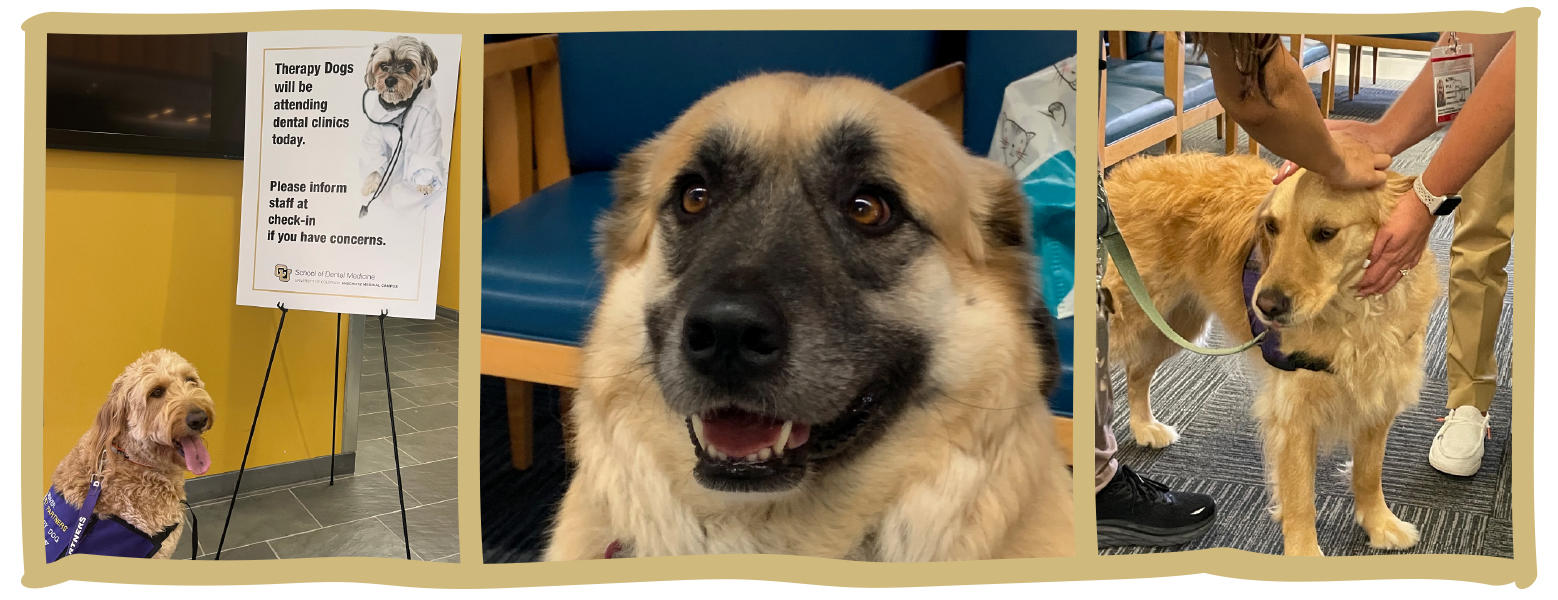Caring for Our Community, Caring for Our Own
Inspiring mental health initiatives across campus
One in five adults in the United States experience mental illness each year. In Colorado alone, upwards of 925,000 adults – more than five times the population of Fort Collins, CO – have a mental health condition, while recent reports have shown that our state ranks 30th in the nation when contrasting the prevalence of mental illness with available access to care. The data tell a very clear story about the current case of mental wellness in our communities.
At the University of Colorado Anschutz Medical Campus, with thanks to invaluable benefactor support, we are uniting across disciplines more than ever before to improve these numbers and to make a difference in the lives of the patient populations we serve, as well as our own. From complex medical research to practical applications targeting improved daily life, philanthropic gifts enable us to discover leading-edge solutions that treat the whole person, reshaping and redefining what well-being should – and can – mean for us all.
By keeping mental health and wellness front and center, we foster a strong and thriving campus community and a healthcare workforce equipped to deliver on our ambitious mission.”

Don Elliman
Chancellor of the University of Colorado Anschutz Medical CampusAcross campus, numerous initiatives are aimed at paving the road to better mental health. By working together through combined expertise, a unique hallmark of the CU Anschutz success story, and fueled by the life-changing power of philanthropy, we are committed to cultivating a stronger, healthier reality for as many lives as possible.
Here are just a few snapshots of the exciting work taking place on our campus.
Bridging the gap: mental health and medicine
Every day, our nurses are on the front lines of healthcare, working tirelessly to deliver the best treatment and care to our community. From striving to prevent disease and administering medications, to interpreting diagnostic tests and observing, assessing and recording symptoms, reactions and progress, nurses are the cornerstone of every patient journey. While this work brings reward and fulfillment, there is an underside to it all that often goes unseen – the mental and emotional load.
![]() The CU College of Nursing is a standout in this regard. It firmly believes in providing support for students through education, to equip them with an arsenal of mental health tools that will aid both themselves and their patients, thereby laying the
foundation for a long and healthy career.
The CU College of Nursing is a standout in this regard. It firmly believes in providing support for students through education, to equip them with an arsenal of mental health tools that will aid both themselves and their patients, thereby laying the
foundation for a long and healthy career.
“Nurses are vital to the healthcare delivery system,” said Kathy Howell, MBA, BSN, RN, NEA-BC, and chief nursing executive of UCHealth. “As trusted partners and advocates for patients and their families, nurses build relationships that directly inform treatment plans and outcomes, providing a critical element of compassion and care.”
The benefactor-supported Psychiatric Mental Health Nurse Practitioner (PMHNP) program – the concept of which was developed right here at CU Anschutz – is a key example of how CU Nursing is narrowing the divide between mental health and medicine. Through the PMHNP curriculum, nurses are thoroughly trained to treat mental illnesses and promote mental health best practices to a diverse set of patients in a wide range of environments.
The program helped me apply what I was learning,” said Kelly Prado, PMHNP-BC, RXN, and a PMHNP alumnus who went on to open her own private practice. “I grew to understand and lean on my life experiences.”
Thanks to anonymous philanthropy, plus institutional support from UCHealth, the program has grown and flourished such that the pool of applicants consistently far outweighs the number of available spots. These gifts have provided greater access and priceless resources for CU nurses and their patients.
“One of the hallmarks of UCHealth University of Colorado Hospital is our commitment to compassionate care, both to the patient and to the providers at our facilities,” said Howell. “The realities of the nationwide nursing shortage illuminate the necessity of investments in training future generations of nurses. Philanthropy is keeping CU Nursing at the forefront of the field. Our nursing workforce requires support to ensure there are enough skilled workers to provide the care that is needed.”
The improvements made possible by benefactor aid have created more educational and clinical opportunities for PMHNP students, including more hours, more rotations and, ultimately, more comprehensive experience. The result? A tremendously positive ripple effect on the communities they serve.
One of our own
Some things are simply meant to be.
When Kelsey Schwander, PharmD '16, made the decision to return to her home state of Colorado to join the PharmD program at the CU Skaggs School of Pharmacy and Pharmaceutical Sciences, she had no way of knowing the unique career path that would present itself as a result. From student to alumnus to now assistant professor and residency director of the very program from which she graduated, Schwander has come full circle with CU Anschutz. Throughout her many milestones thus far, which include starting her own consulting business and completing a Clinical Cannabinoid Medicine Certification, her focus has always remained firmly the same: to empower the community through improving the connections between mental wellness and public health.
Upon Schwander’s graduation in 2016, the philanthropy of Good Day Pharmacy – the largest independently owned pharmacy in Colorado, founded by a fellow CU Anschutz alumnus – laid the groundwork for what was to become an inspiring career. As Good Day Pharmacy’s very first resident – a role Schwander was recruited for – she pioneered multiple clinical programs, the most notable of which, perhaps, was pharmacist-prescribed hormonal contraception.

“It was really rewarding to watch the program I created from scratch be practiced in multiple pharmacies,” recalled Schwander. “We were the first pharmacy to prescribe birth control in Colorado!”
After her tenure there, which saw her stay on post-residency to run operations for the business, Schwander felt the call of academia. In what some might call a twist of fate, she made an eventual return to her roots at CU Anschutz. As the residency director at the innovative Skaggs School of Pharmacy and a practicing clinician with the Marcus Institute for Brain Health – an organization solely funded by philanthropy to provide leading-edge treatment and research for traumatic brain injuries – Schwander continues to carve a multi-faceted career geared toward meeting people where they are.
She now divides her time between inspiring the next generation of pharmacists, just as she herself was inspired, and treating veterans with traumatic brain injuries and PTSD. With philanthropic support as the backdrop connecting the threads of her pharmaceutical journey, Schwander funnels her wealth of experience toward her goal of improving mental wellness and public health. Her efforts in this sphere see her working in real time to impart critical knowledge to her students, including cannabis certification courses, and improving the mental health and overall well-being of her patients through an expertise in medications, smoking cessation programs and cannabis and CBD education for her brain injury patients.
With such a passion for clinical services as her guiding force, Schwander is well on her way to creating a lasting legacy in public health.
The “dogtor” will see you now
For most, going to the dentist doesn’t score high on the list of enjoyable tasks. In fact, many patients report experiencing moderate to acute levels of anxiety and fear when heading in for a dental appointment, whether that be for a routine cleaning and exam or a more complex procedure. Now, thanks to wonderful benefactor support, the CU School of Dental Medicine (CU Dental) is aiming to improve patients’ anxiety as well as their dental health with the delightful addition of furry, four-legged friends to their clinics.
Initially shuttered due to the COVID-19 pandemic, a generous seed grant from benefactor Judi Cogen and the Cielo Foundation breathed new life into the Paws for a Smile program, allowing for an expansive new partnership with Denver Pet Partners to train even more dogs for the field and support more patients at the many CU Dental clinics.

“For some patients, a comfort animal can decrease their anxiety and enhance their sense of well-being,” said Denise Kassebaum, DDS, MS, and dean of CU Dental.
Given in honor of her late mother Lila Lee Cogen, Judi hopes her lead gift will bring loving, compassionate care to others while strengthening the bonds between human and canine companions. For all patients, their presence brings joy and happiness; for those who would otherwise avoid dental appointments, potentially leading to serious health problems down the road, the therapy dogs of the Paws for a Smile program are paramount.
Once trained and deployed, the dogs roam their respective CU Dental clinics to interact with patients, especially with those undergoing treatment – in some cases, the dog remains in the room throughout the entirety of the appointment. The ability to reach down and stroke an animal’s fur mid-procedure has been shown to significantly decrease patients’ heart rates, far more than the range typically seen without a therapy dog present.
“We had a lower average pulse and lower systolic blood pressure for when [the therapy dog] was present,” said Lexi Dunnells, a 2024 DDS and MPH candidate. “We also qualitatively noted that, during the injection of local anesthesia, pulse stayed steady when the dog was there and did not when the dog was not there.”
As simple as these interactions may seem, the calming and de-stressing effect the therapy dogs have on those suffering from dentophobia pays dividends, potentially providing a gateway to a future of established dental hygiene and routine care for a wider audience.
As one patient put it, “I’d go to the dentist more often if I could hang out with the dog.”
There are an estimated 35 million Americans who avoid seeing a dentist out of fear. Now, thanks to the generosity of Judi Cogen and the Cielo foundation, the therapy dogs of Paws for a Smile are decreasing those numbers one tail wag at a time, making dental visits for Coloradans a little less scary.
A better tomorrow
Throughout our campus and community, CU Anschutz is committed to taking the steps to improve mental health resources and treatment as well as available access to care. From fully equipped nurses in the field and alumni with dedicated experience in a compassionate mission, to delightful new additions that make dental visits more palatable, we believe that mental wellness can and should take priority for all. By continuing to collaborate multidisciplinarily and focus on pioneering revolutionary health solutions, combined with the invaluable support from our benefactors, we are serious about cementing better mental health as a cornerstone for the people in Colorado and beyond.
“There is much to take pride in – and take inspiration from – as we work to make high-quality mental healthcare a reality for our communities and reduce the mental health burden for the next generation,” said Chancellor Elliman.
From where we sit, the future looks quite promising.
Want to share this article with a friend? Send them a link to Momentum via email.